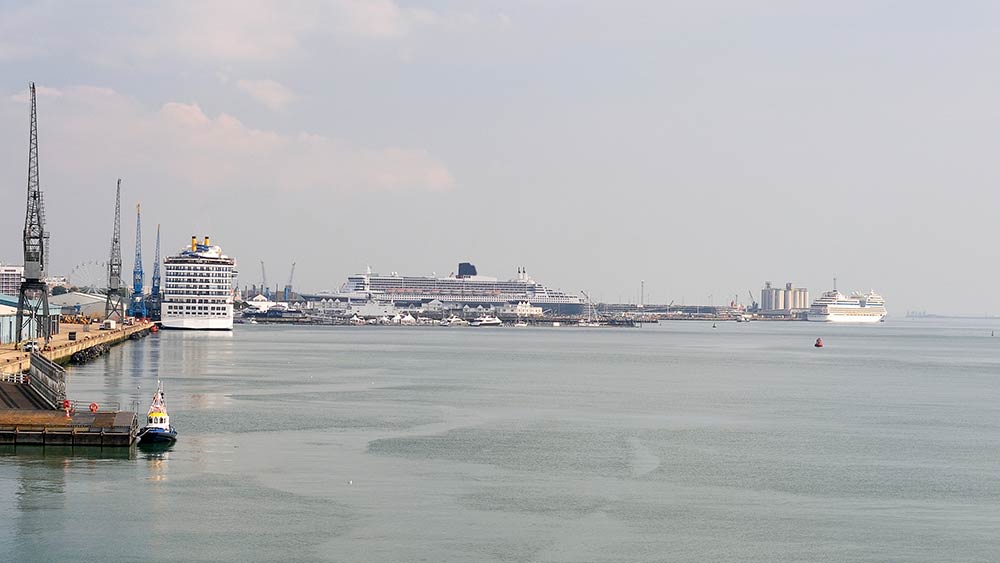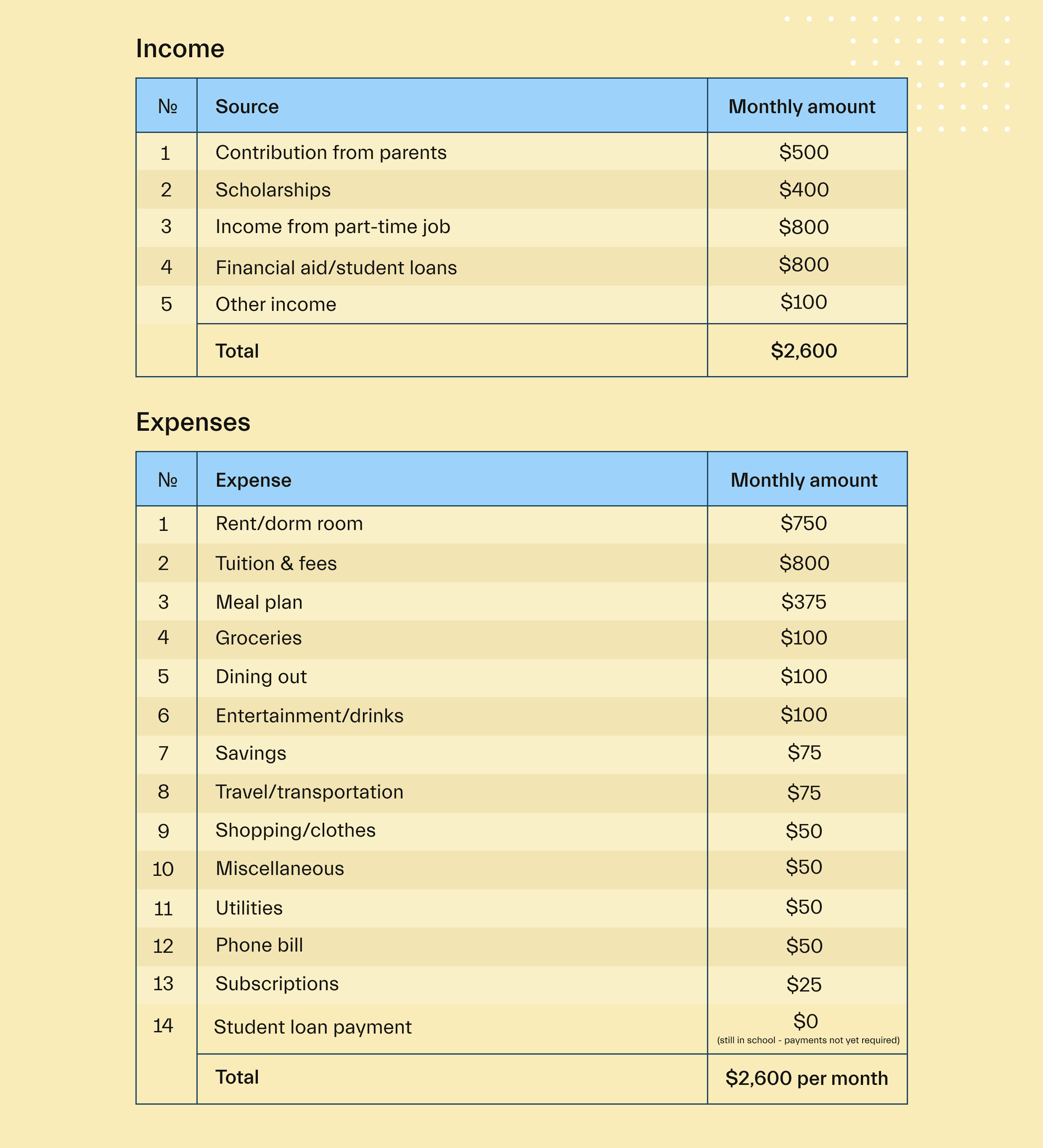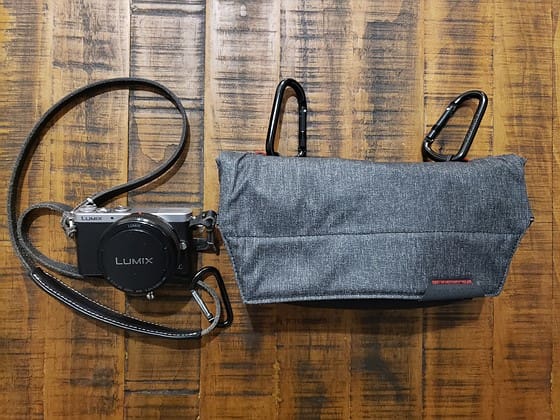ExPat Destinations
Travel Light, Travel Right: Packing Tips for Families


As a parent, I know just how overwhelming packing for a family trip can be. But with the right tips and tricks, it doesn’t have to be a stressful experience.
In this guide, I’ll share practical advice on choosing the perfect suitcase for your little travelers, packing essential items to keep your kids happy and safe, and minimizing luggage to make traveling easier.
Plus, I’ll give you clever packing hacks and an ultimate checklist so you never forget anything again.
Let’s travel light and travel right!
Key Takeaways
- Choose durable and lightweight materials for kids’ luggage
- Pack versatile clothing items and use packing hacks to minimize luggage
- Create a checklist and be strategic in packing to maximize space
- Tailor packing approach to each child’s needs and include essential items for children
Kids’ Luggage: Choosing the Right Suitcase for Your Little Travelers
When it comes to choosing the right suitcase for your little travelers, you’ll want to make sure it’s durable, lightweight, and easy for them to handle.
Kids’ luggage should be able to withstand the rough handling that often comes with travel. Look for suitcases made from strong materials like polycarbonate or ABS plastic. These can handle bumps and knocks without breaking easily.
It’s also important to consider the weight of the suitcase since kids may struggle with heavy bags. Opt for lightweight options made from materials like nylon or polyester.


Lastly, choose a suitcase with wheels and a telescopic handle so that your child can easily maneuver it through airports and hotels.
Essential Items for Children: What to Pack to Keep Your Kids Happy and Safe
Make sure to pack all the necessary items for your kids to keep them happy and safe during your trip. When it comes to traveling with children, being prepared is key. Here are three essential items you should always have in your kids’ travel bag:
-
Comforting Blanket: A soft and familiar blanket can help soothe your child during long journeys or unfamiliar sleeping arrangements.
-
Entertainment Kit: Fill a small bag with age-appropriate games, books, and toys that will keep your little ones entertained throughout the trip.
-
Snacks and Water Bottle: Hunger strikes at unexpected times, so pack a variety of healthy snacks like fruit slices or granola bars. Don’t forget a refillable water bottle to stay hydrated on the go.
Minimizing Luggage: Tips for Streamlining Your Family’s Packing
Packing efficiently can help streamline your family’s luggage. As a parent, I know how overwhelming packing for a trip can be, especially when you have kids in tow. However, with some simple tips and tricks, you can minimize the amount of luggage you bring without sacrificing anything essential.
One strategy is to pack versatile clothing items that can be mixed and matched. This way, each piece serves multiple purposes and reduces the number of outfits needed. Additionally, rolling clothes instead of folding them helps save space and prevent wrinkles.


Another useful tip is to pack travel-size toiletries or use refillable containers to avoid carrying bulky bottles. You can also consider leaving behind unnecessary items like extra shoes or excessive amounts of toys to lighten your load.
Remember to make a checklist before packing to ensure you have everything you need while avoiding overpacking. By being mindful of what you truly need versus want, you’ll be able to travel light and enjoy a more stress-free journey with your family.
Packing Hacks: Clever Tricks to Maximize Space and Stay Organized
Using versatile clothing items and travel-size toiletries can help maximize space in your luggage. When it comes to packing for a family trip, it’s important to be strategic and efficient. Here are some clever packing hacks that will not only save you space but also keep you organized:
- Roll your clothes: Rolling your clothes instead of folding them not only saves space but also helps prevent wrinkles.
- Use packing cubes: These handy organizers are a game-changer when it comes to keeping things tidy in your suitcase. They allow you to separate different items and easily locate what you need.
- Utilize empty spaces: Make use of any empty spaces, such as stuffing socks or underwear inside shoes.
By implementing these packing hacks, you’ll be amazed at how much more you can fit into your luggage while staying organized.
Now, let’s move on to the ultimate checklist for family travel: don’t forget these must-have items…
The Ultimate Checklist for Family Travel: Don’t Forget These Must-Have Items
Don’t forget to bring these essential items for your family trip.
As a parent, I know how important it is to be prepared when traveling with kids. First and foremost, make sure you have all the necessary documents such as passports, ID cards, and medical records.


Pack enough clothes for each family member, including extra outfits in case of accidents or spills. Don’t forget toiletries like toothbrushes, toothpaste, and soap.
For entertainment during the journey, bring books, games, and electronic devices loaded with movies or TV shows. Snacks are a must-have too! Pack some healthy options like fruits and granola bars to keep hunger at bay.
Finally, always carry a first aid kit with essentials like band-aids, antiseptic cream, and any medications your family may need.
Managing Kids’ Carry-Ons: How to Pack for In-Flight Entertainment and Comfort
Make sure your kids’ carry-ons are filled with activities and comfort items to keep them entertained during the flight. Here are a few essentials that will make their journey more enjoyable:
-
A coloring book and crayons: Let their creativity flow as they color in pictures of their favorite characters or scenes from their favorite movies.
-
Snacks: Pack some healthy snacks like granola bars, fruit slices, and crackers to keep hunger at bay. Don’t forget a reusable water bottle to stay hydrated!
-
Their favorite stuffed animal or blanket: Having something familiar from home can provide comfort and security during the flight.


Remember, traveling with kids can be challenging but being prepared is key. By packing these simple yet essential items, you’ll ensure a smoother and more enjoyable journey for your little ones.
Happy travels!
Packing for Different Ages: Tailoring Your Approach to Each Child’s Needs
When packing for different ages, it’s important to consider each child’s individual needs and tailor your approach accordingly.
For infants, pack plenty of diapers, wipes, and extra clothes in case of accidents. Don’t forget their favorite blanket or toy for comfort.
Toddlers require a bit more planning. Pack snacks to keep them satisfied during the journey and small toys or activities to keep them entertained. Remember to bring any necessary medications or special items they may need.
Older children can help with their own packing but might still need guidance. Encourage them to choose a few favorite toys or books and remind them of any essentials like toiletries or electronics chargers. It’s also crucial to involve them in the process so they feel included and responsible for their belongings.
Frequently Asked Questions
Are There Any Restrictions on What Can Be Packed in Kids’ Luggage?
Yes, there are some restrictions on what can be packed in kids’ luggage. It’s important to check with your airline for specific guidelines, but generally, items like sharp objects and liquids over a certain amount are not allowed.


How Can I Ensure That My Child’s Essential Items Are Easily Accessible During Travel?
I make sure my child’s essential items are easily accessible during travel by packing them in a separate bag or using pockets in their carry-on. This way, we can quickly find what we need without rummaging through the entire luggage.
Can You Provide Some Tips for Packing Efficiently and Minimizing Luggage for a Family Trip?
Sure, here are some tips on packing efficiently and minimizing luggage for a family trip. Start by making a checklist, pack versatile clothing, use packing cubes, and only bring essentials. Happy travels!
What Are Some Creative Packing Hacks That Can Help Save Space?
One creative packing hack is using vacuum-sealed bags to compress clothes, saving space in your luggage. It’s like shrinking your wardrobe down to a tiny size! Plus, it keeps everything organized and wrinkle-free.
Is There a Checklist Available That Includes All the Must-Have Items for Family Travel?
Yes, there is an ultimate checklist available that includes all the must-have items for family travel. It’s a helpful resource to ensure you don’t forget anything important when packing for your trip.



Hello there! I’m Gabriel Holmes, a 41-year-old travel enthusiast with a degree in Marketing from the Indiana University Northwest. I’m the voice behind TopWorldTravels.com, where I channel my passion for exploration into engaging travel narratives and invaluable tips.
My journey into the world of travel is a personal odyssey, fueled by a desire to uncover the beauty and diversity our planet has to offer. Over the years, I’ve wandered through countless destinations, immersing myself in various cultures and capturing the essence of each experience through my writing. From the bustling streets of metropolitan cities to the serene landscapes off the beaten path, I’ve made it my mission to share the gems I discover along the way.
Armed with my marketing background from IUN, I approach travel with a strategic and analytical mindset. This expertise allows me to curate content on TopWorldTravels.com that resonates with a diverse audience. Whether you’re a budget backpacker or a luxury traveler, my goal is to provide insights that cater to all tastes and preferences.
Beyond the typical tourist spots, I’m committed to uncovering the authentic heart of each destination. My writings not only offer practical advice on packing and navigating unfamiliar terrains but also emphasize the importance of responsible tourism. I believe in leaving a positive impact on the places I visit, promoting sustainable practices that preserve the environment and support local communities.
Join me on my virtual expeditions at TopWorldTravels.com, where my words weave a tapestry of discovery, wanderlust, and cultural appreciation. Travel, for me, is more than a leisure activity; it’s a transformative journey that enriches the soul and broadens horizons. Let TopWorldTravels.com be your compass to a world of unforgettable experiences, as we embark on this vicarious adventure together.
ExPat Destinations
Discover Affordable Romance: Top Inexpensive Weekend Getaways for Couples in Upstate New York


Upstate New York, with its scenic landscapes, serene lakes, and majestic mountains, offers a plethora of options for couples seeking a romantic retreat without breaking the bank. Whether you’re drawn to the tranquil waters of the Finger Lakes or the rugged beauty of the Adirondacks, there are numerous affordable weekend getaways that promise a memorable experience for you and your significant other.
Experience the Charm of the Finger Lakes
The Finger Lakes region is renowned for its natural beauty and wine culture, making it an ideal destination for couples. Here, you can indulge in wine tasting tours at some of the most prestigious wineries in the area without spending a fortune. Many wineries offer complimentary or low-cost tastings, allowing you to savor the rich flavors of the region’s wines.
Apart from wine tours, the Finger Lakes are home to numerous state parks and trails that offer breathtaking views and outdoor activities such as hiking, biking, and boating. Watkins Glen State Park, with its stunning waterfalls and gorges, is a must-visit for nature-loving couples. Accommodations in the area range from cozy bed and breakfasts to affordable cabin rentals, ensuring there’s something to fit every budget.
Adventures in the Adirondacks
For couples who thrive on adventure and outdoor activities, the Adirondack Mountains provide a rugged backdrop for a romantic getaway. The region is dotted with serene lakes, dense forests, and high peaks, offering endless opportunities for exploration and bonding.
You can embark on a scenic hike to one of the many summits for panoramic views of the surrounding area or enjoy a quiet canoe ride on Mirror Lake. The Adirondacks are also home to charming small towns like Lake Placid, where you can find affordable lodging and dining options. In the evening, nothing beats sitting by a campfire under the stars, wrapped in the arms of your loved one.
Retreats That Won’t Break the Bank
Finding a romantic retreat in Upstate New York that’s both affordable and memorable is easier than you might think. Many resorts and inns offer special packages for couples, including accommodations, meals, and activities at a fraction of the usual cost. These packages often include extras like champagne on arrival or a private dinner for two, adding a touch of luxury to your getaway.
Another budget-friendly option is to rent a vacation home or cabin. This not only gives you more privacy and space but also allows you to save money by cooking your own meals. With the abundance of fresh, local produce available in Upstate New York, preparing a romantic dinner together can be a fun and intimate experience.
Maximizing Your Experience
To make the most of your inexpensive romantic weekend getaway in Upstate New York, consider visiting during the off-peak seasons. Spring and fall offer mild weather, fewer crowds, and lower prices, while still providing the scenic beauty and activities that the region is known for.
Additionally, many attractions and activities in Upstate New York are free or have a minimal cost. Exploring the quaint towns, visiting local farmers’ markets, or simply enjoying the natural beauty of the area can be incredibly romantic and won’t add to your expenses.
Creating Lasting Memories
An inexpensive romantic weekend getaway in Upstate New York isn’t just about saving money; it’s about creating lasting memories with your partner. Whether it’s sharing a bottle of wine overlooking the Finger Lakes, hiking to a breathtaking viewpoint in the Adirondacks, or enjoying a quiet moment together by a campfire, these experiences can strengthen your bond and bring you closer together.
In conclusion, Upstate New York offers a wealth of options for couples looking for an affordable romantic retreat. From the scenic beauty of the Finger Lakes and the Adirondacks to the charming towns and affordable accommodations, there’s something for every couple to enjoy. By planning ahead and taking advantage of the many budget-friendly options available, you can experience a romantic getaway that’s both memorable and affordable.



Hello there! I’m Gabriel Holmes, a 41-year-old travel enthusiast with a degree in Marketing from the Indiana University Northwest. I’m the voice behind TopWorldTravels.com, where I channel my passion for exploration into engaging travel narratives and invaluable tips.
My journey into the world of travel is a personal odyssey, fueled by a desire to uncover the beauty and diversity our planet has to offer. Over the years, I’ve wandered through countless destinations, immersing myself in various cultures and capturing the essence of each experience through my writing. From the bustling streets of metropolitan cities to the serene landscapes off the beaten path, I’ve made it my mission to share the gems I discover along the way.
Armed with my marketing background from IUN, I approach travel with a strategic and analytical mindset. This expertise allows me to curate content on TopWorldTravels.com that resonates with a diverse audience. Whether you’re a budget backpacker or a luxury traveler, my goal is to provide insights that cater to all tastes and preferences.
Beyond the typical tourist spots, I’m committed to uncovering the authentic heart of each destination. My writings not only offer practical advice on packing and navigating unfamiliar terrains but also emphasize the importance of responsible tourism. I believe in leaving a positive impact on the places I visit, promoting sustainable practices that preserve the environment and support local communities.
Join me on my virtual expeditions at TopWorldTravels.com, where my words weave a tapestry of discovery, wanderlust, and cultural appreciation. Travel, for me, is more than a leisure activity; it’s a transformative journey that enriches the soul and broadens horizons. Let TopWorldTravels.com be your compass to a world of unforgettable experiences, as we embark on this vicarious adventure together.
ExPat Destinations
Top Family-Friendly All-Inclusive Resorts: Where Vacation Meets Unforgettable Activities & Amenities


When planning a family vacation, finding the perfect destination that caters to the needs and desires of every family member can be a challenge. This is where all-inclusive resorts come into play, offering a seamless and stress-free vacation experience. The best all-inclusive resorts for families are those that combine comfort, entertainment, and convenience to create unforgettable memories. In this article, we will guide you through some of the top family-friendly all-inclusive resorts, highlighting their unique activities and amenities that make them stand out.
Why Choose an All-Inclusive Resort for Your Family Vacation?
All-inclusive resorts are the epitome of hassle-free vacations. These resorts offer a unique package that includes lodging, meals, drinks, and often a wide range of activities—all for one price. This means that families can enjoy their vacation without worrying about the logistics of meal planning or scheduling activities. Additionally, many all-inclusive resorts are designed with families in mind, offering amenities and services that cater to both children and adults. From kids’ clubs and water parks to spa services and gourmet dining, these resorts ensure that every family member has an enjoyable and relaxing experience.
Key Features of the Best All-Inclusive Resorts for Families
The best all-inclusive resorts for families are characterized by several key features that ensure a memorable and enjoyable vacation experience. These include:
– Family-Friendly Accommodations: Spacious rooms or suites designed to comfortably fit families of all sizes, with amenities like mini-fridges, cribs, and connecting rooms.
– Diverse Dining Options: A variety of dining venues that cater to all tastes and dietary needs, including kid-friendly menus, buffet-style meals, and fine dining options.
– Engaging Activities for All Ages: A wide range of activities that keep both kids and adults entertained, such as water sports, arts and crafts, cooking classes, and evening entertainment.
– Dedicated Kids’ Clubs: Professionally supervised clubs offering age-appropriate activities for children, allowing parents some alone time to relax and unwind.
– Access to Amenities: Unlimited use of the resort’s facilities, including pools, beaches, fitness centers, and recreational areas.
Spotlight on Top Family-Friendly All-Inclusive Resorts
While there are many all-inclusive resorts to choose from, a few stand out for their exceptional service, amenities, and family-oriented activities. Here are some top picks:
– Resort A: Nestled on a pristine beach, this resort offers a magical experience with its themed water park, kids’ adventure club, and family suites equipped with bunk beds and gaming consoles. Dining options range from casual beachside grills to gourmet restaurants.
– Resort B: Located in a lush tropical setting, this resort features an extensive outdoor adventure park, complete with zip lines and a lazy river. Families can enjoy spacious villa accommodations and a variety of international cuisine at several on-site restaurants.
– Resort C: This luxury resort combines elegance with family fun, offering a kids-only pool, a teen lounge, and babysitting services. Adults can indulge in spa treatments or golf, while the whole family can enjoy the nightly live entertainment.
Planning Your Stay at an All-Inclusive Resort
To ensure the best experience at an all-inclusive resort, consider the following tips when planning your family vacation:
– Research and Compare: Look into various resorts to compare their features, amenities, and activities. Read reviews from other families to get an idea of their experiences.
– Check for Deals and Packages: Many resorts offer special deals or packages for families, which can include discounts on accommodations, complimentary activities, or free stays for children.
– Consider the Location: Choose a resort that is conveniently located near attractions or natural landmarks you wish to explore as a family.
– Inquire About Childcare Services: If you’re planning to enjoy some adult-only time, make sure the resort offers reliable childcare services or kids’ clubs.
Making Memories That Last a Lifetime
Choosing the right all-inclusive resort for your family vacation can lead to an unforgettable experience filled with fun, relaxation, and cherished moments. By selecting a resort that offers a wide range of activities and amenities tailored to families, you can ensure that every family member has an enjoyable and memorable stay. The best all-inclusive resorts for families are those that understand the unique needs of traveling with children and go above and beyond to meet those needs, creating a perfect backdrop for your family’s adventures.
As you embark on your next family vacation, remember that the key to a successful trip lies in finding a destination that offers something for everyone. With the right all-inclusive resort, you can look forward to a hassle-free vacation where the focus is solely on spending quality time together and making lifelong memories.



Hello there! I’m Gabriel Holmes, a 41-year-old travel enthusiast with a degree in Marketing from the Indiana University Northwest. I’m the voice behind TopWorldTravels.com, where I channel my passion for exploration into engaging travel narratives and invaluable tips.
My journey into the world of travel is a personal odyssey, fueled by a desire to uncover the beauty and diversity our planet has to offer. Over the years, I’ve wandered through countless destinations, immersing myself in various cultures and capturing the essence of each experience through my writing. From the bustling streets of metropolitan cities to the serene landscapes off the beaten path, I’ve made it my mission to share the gems I discover along the way.
Armed with my marketing background from IUN, I approach travel with a strategic and analytical mindset. This expertise allows me to curate content on TopWorldTravels.com that resonates with a diverse audience. Whether you’re a budget backpacker or a luxury traveler, my goal is to provide insights that cater to all tastes and preferences.
Beyond the typical tourist spots, I’m committed to uncovering the authentic heart of each destination. My writings not only offer practical advice on packing and navigating unfamiliar terrains but also emphasize the importance of responsible tourism. I believe in leaving a positive impact on the places I visit, promoting sustainable practices that preserve the environment and support local communities.
Join me on my virtual expeditions at TopWorldTravels.com, where my words weave a tapestry of discovery, wanderlust, and cultural appreciation. Travel, for me, is more than a leisure activity; it’s a transformative journey that enriches the soul and broadens horizons. Let TopWorldTravels.com be your compass to a world of unforgettable experiences, as we embark on this vicarious adventure together.
ExPat Destinations
Discover the Weirdest Natural Places on Earth: From Socotra Island to Blood Falls


The planet we call home is a tapestry of wonder, filled with natural phenomena that defy explanation and places so unique, they seem to belong to another world. Among these, some stand out for their sheer oddity and the awe they inspire. Let’s embark on a journey to some of the weirdest natural places on earth, from the alien landscapes of Socotra Island to the eerie beauty of Blood Falls.
Socotra Island: The Alien World on Earth
Nestled in the Arabian Sea, Socotra Island is often described as the most alien-looking place on Earth. This remote island is home to flora and fauna found nowhere else in the world. The Dragon Blood Tree, with its umbrella-shaped canopy and red sap, is perhaps the most famous of Socotra’s natural wonders. The island’s isolation for millions of years has created a unique ecosystem, making it a living museum of evolutionary changes. Visiting Socotra is like stepping into a lost world, where the landscapes seem to whisper secrets of the ancient earth.
Salar de Uyuni: The Mirror of the Sky
In the heart of the Bolivian Altiplano lies Salar de Uyuni, the largest salt flat in the world. During the rainy season, a thin layer of water transforms this vast white expanse into a perfect mirror, reflecting the sky so accurately that it becomes impossible to tell where the earth ends and the sky begins. This natural marvel not only offers breathtaking views but also plays a crucial role in calibrating satellites due to its extensive and flat surface. Salar de Uyuni is a testament to the planet’s ability to create beauty in the most unexpected places.
Fly Geyser: A Man-Made Wonder Turned Natural Phenomenon
Although initially created by accident during a well drilling in 1964, Fly Geyser in Nevada has evolved into a stunning natural spectacle. Over the years, minerals have accumulated, forming colorful mounds that continue to grow and change shapes. The geyser spews hot water up to five feet in the air, creating a surreal landscape that seems more at home on an alien planet than in the Nevada desert. The vibrant colors and dynamic nature of Fly Geyser make it a captivating sight and a reminder of nature’s power to reclaim and transform.
Catatumbo Lightning: The Everlasting Storm
At the mouth of the Catatumbo River in Venezuela, an extraordinary meteorological phenomenon occurs. Known as the Catatumbo Lightning, this storm produces an almost continuous display of lightning, up to 280 times per hour, and can last for as long as 10 hours a night. This natural light show has been a beacon for sailors for centuries, earning it the nickname “Lighthouse of Maracaibo.” The unique conditions that create this phenomenon are still not fully understood, making Catatumbo Lightning a mysterious and mesmerizing spectacle.
Blood Falls: Antarctica’s Red Waterfall
In the stark, icy landscape of Antarctica’s Taylor Glacier, a striking anomaly exists. Blood Falls, a five-story waterfall, flows from the glacier’s surface, staining the snow and ice with a deep red hue. This eerie sight is the result of iron-rich water, trapped beneath the glacier for over a million years, oxidizing upon contact with air. The presence of ancient microbial life in the water adds another layer of intrigue to Blood Falls, challenging our understanding of life in extreme environments.
Moeraki Boulders: New Zealand’s Spherical Stones
Scattered along Koekohe Beach on New Zealand’s Otago coast, the Moeraki Boulders are a curious sight. These large, spherical stones appear almost too perfect to be natural. Yet, they are the result of sedimentary rock accumulation and erosion over millions of years. With some boulders measuring up to three meters in diameter, they seem like relics from a giant’s game. The Moeraki Boulders are not only a geological wonder but also a cultural treasure, steeped in Maori legend.
Our planet is brimming with places that challenge our perceptions and inspire wonder. From the alien landscapes of Socotra Island to the geological oddities of the Moeraki Boulders, the weirdest natural places on earth remind us of the beauty and mystery that surrounds us. These destinations are not just travel spots; they are vivid reminders of Earth’s diversity and the endless surprises it holds. As we continue to uncover these natural wonders, we are reminded of the importance of preserving our planet’s incredible biodiversity for future generations to explore and marvel at.



Hello there! I’m Gabriel Holmes, a 41-year-old travel enthusiast with a degree in Marketing from the Indiana University Northwest. I’m the voice behind TopWorldTravels.com, where I channel my passion for exploration into engaging travel narratives and invaluable tips.
My journey into the world of travel is a personal odyssey, fueled by a desire to uncover the beauty and diversity our planet has to offer. Over the years, I’ve wandered through countless destinations, immersing myself in various cultures and capturing the essence of each experience through my writing. From the bustling streets of metropolitan cities to the serene landscapes off the beaten path, I’ve made it my mission to share the gems I discover along the way.
Armed with my marketing background from IUN, I approach travel with a strategic and analytical mindset. This expertise allows me to curate content on TopWorldTravels.com that resonates with a diverse audience. Whether you’re a budget backpacker or a luxury traveler, my goal is to provide insights that cater to all tastes and preferences.
Beyond the typical tourist spots, I’m committed to uncovering the authentic heart of each destination. My writings not only offer practical advice on packing and navigating unfamiliar terrains but also emphasize the importance of responsible tourism. I believe in leaving a positive impact on the places I visit, promoting sustainable practices that preserve the environment and support local communities.
Join me on my virtual expeditions at TopWorldTravels.com, where my words weave a tapestry of discovery, wanderlust, and cultural appreciation. Travel, for me, is more than a leisure activity; it’s a transformative journey that enriches the soul and broadens horizons. Let TopWorldTravels.com be your compass to a world of unforgettable experiences, as we embark on this vicarious adventure together.
-



 Traveling Solo6 months ago
Traveling Solo6 months agoAdventures Through the Lens: a Solo Traveler’s Photography Guide
-



 Traveling Solo5 months ago
Traveling Solo5 months agoSolo Travel: Mastering the Art of Getting Around
-



 ExPat Destinations7 months ago
ExPat Destinations7 months agoFrom Foreigner to Local: Cultural Adaptation Explained for Expats
-



 Traveling Solo5 months ago
Traveling Solo5 months agoThe Exciting Chronicles of Solo Travel Experiences
-



 ExPat Destinations8 months ago
ExPat Destinations8 months agoBuilding Connections: the Importance of Expat Communities
-



 Senior Travel8 months ago
Senior Travel8 months agoVoyage Through Majestic Canadian Waters
-



 Traveling Solo7 months ago
Traveling Solo7 months agoUnpack the Perfect Journey: Mastering Your Packing Essentials
-



 ExPat Destinations6 months ago
ExPat Destinations6 months agoMaking It Official: Understanding Visa and Residency for Expats





